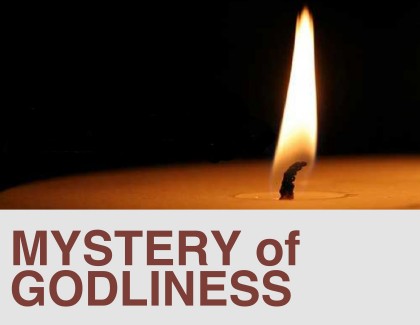The impression we get from much of what passes for Christian teaching is that the closer we get to God, the more like Him we will become, and the less like ourselves.
In this way, God is sort of pictured as a being who sucks the human life out of us and injects us with His own life so that we become less like “me” and more like Him. As part of this exchange, we also get eternal life.
 It occurred to me recently that this sort of Christian theology makes God sound like a vampire. He “bites” us, and while we continue to “look” like ourselves, we get injected with His “blood” so that we “die” but remain alive forever. As the years go by, our human nature starts to fade away, and our “divine” nature starts to show through.
It occurred to me recently that this sort of Christian theology makes God sound like a vampire. He “bites” us, and while we continue to “look” like ourselves, we get injected with His “blood” so that we “die” but remain alive forever. As the years go by, our human nature starts to fade away, and our “divine” nature starts to show through.
And as is the case with many vampires, they stop being too concerned about the humanity to which they used to belong, and use humans only for selfish reasons and personal gain. This is the dark side of being a vampire, and the dark side of being a Christian.
More Like God
It is not uncommon to encounter Christians who act as if their primary goal in life is to become less “human” and more “like God.” They give up their old friends, interests, desires, hobbies, and tastes, and instead hang out just with other Christians while studying an ancient book and speaking an arcane language that nobody else understands. They look down their noses on all the “unenlightened” humans around them who are “not filled with the Holy Spirit.” They sneer and scoff at all the ignorant masses who “live lives of emptiness and insignificance.”
But is this the way it is supposed to be?
No, I do not think so.
I believe that God wants us to be more human; not less.
God wants us to live
Jesus came so that we might have life, and might have it abundantly (John 10:10). He did not come to destroy fun and turn our smiles into frowns and our laughter into mourning, but to show us how to really have fun in life, to give us joy, and to turn our mourning into laughter.
God did not save us so that we might die, but so that we might live.
God made life, and He made this world, and He gave both to us so that we might enjoy it. Food tastes good because God made it taste good and gave us tastebuds by which to taste it. If God didn’t want us to enjoy food, He wouldn’t have given us tastebuds.
The same goes for the beauty of creation, the joy of good music, the physical sensation of touch, and even the pleasure of sex. These things are not bad or evil, but are good things God gave us to enjoy.
We worship God when we saturate ourselves with the good gifts He has given to us.
Near the end of his life, Bonhoeffer taught that God is not God at the price of emptying me of my humanity; humanity does not consist in letting oneself be sucked dry by a divine vampire! (Wink, The Human Being, 37).
The 19th Century philosopher Ludwig Feuerbach criticized Christianity by saying that we have made God in our own image, and in so doing, have become less human. He said that by putting all of our best traits onto God, we decide that these traits are not “human” but divine, and thus, we are dehumanized. Having projected what it means to be human onto God, we have become less human as a result.
The Christian religion has argued the opposite, but with similar conclusions. Seeing from Scripture that we were made in the image of God, we argue that the goal of life is to empty ourselves and become more like God. Life, we say, is found in conforming to the image of God and becoming less human as a result.
It seems that Jesus revealed a different path than either of these. While agreeing that God made us in His image, Jesus disagreed that this means we must empty ourselves of our humanity and become more like God. Jesus came that we might have life and might have it more abundantly. Jesus wants us not to empty ourselves of our humanity, but rise up to what it means to be fully human.

Becoming Fully Human
God is not most glorified when we become more like Him, but when we become more like us.
God did not make us to be God, but to be human, fully human.
We become more “godly” by becoming ourselves; that is, by becoming who God made us to be.
To fully worship God is to fully live as humans. He made us to be humans, and we fulfill our purpose by living as humans.
And this is what sets a relationship with God apart from all other belief systems in the world. Most religions in the world try to get us to be less human so that we can become like God. Atheism rightly reacts to this wrong idea, and says that to fully live, we must be fully human. The problem with atheism, is that they believe we must reject God to become fully human.
God agrees with atheists. God too believes that our purpose is to become fully human. But Jesus teaches that we only become fully human when we live as God intended. The “rules” of God are not provided to destroy life and fun and pleasure, but to maximize them.
Atheism says: “You have made God and by giving him up, you become more human.”
Religion says: “God has made us and by following Him, we become less human.”
Jesus says, “God had made us, and by following Him, you become more human.”
Jesus became human, not to lead us back to God, but to lead us back to humanity.
So start to become more “Godlike” today. How? By learning to live like yourself. This is what God wants.




This is pretty amazing. ?
I would agree that we are not to seek to be more ‘God’-like. Scripture teaches that we are to be more ‘Christ’-like. The difference being that God came to Earth to (in part) to show us how to live as humans. As you say,”The “rules” of God are not provided to destroy life and fun and pleasure, but to maximize them.” God is teaching us how to be the best we can be. He wants us to be free and prosperous (not in the material sense), not enslaved by sin which destroys us and our relationship with Him.
Right. We are to be who God made us to be, rather than enslaved to the thinks that make us less than who God wants us to be.
I have a friend who calls himself a recovering politician. I wonder, based on how you apply words and then change the point, if maybe you too are a recovering politician. You state that we should be “fully” human to enjoy God’s gifts and then you equate “self” and human. Jesus did in fact say that He came so we might have life more abundantly, but it must be through Him and not ourselves. He also said in Luke 9:23 – … he must deny himself, take up his cross, and follow Me. There is a difference between “self” and humanity.
Thanks for the mind work!
I too was wondering how to “reconcile” Luke 9:23 with John 10:10 . . . I think you are right, Doug . . . There is a difference between “self” and humanity. The way I understand it, Luke 9:23 (and others like it) form the foundation of discipleship. Denying yourself is to walk more the way Christ did and not necessarily become less human. Yes . . . Thank you for the mind work!
I am not quite sure what you are saying with this recovering politician idea… What does that mean?
I never really thought of it this way. I am LDS, I can hear many church leaders and members having a fit over this.
This article is worth thinking about.
I appreciate the focus of your post. Our humanity is not the problem; our rebellion is the problem. I have also been disturbed by our ‘anti-humanity’ tone as churches, using our words sloppily or lazily. Humanity has been corrupted. Humanity as it is now is corrupt. Yet, humanity as God designed and created is beautiful and wonderful. C.S. Lewis helped me see the wonder of humanity as God envisions it.
I would agree with some comments, though, that the use of ‘self’ and ‘humanity’ should be clearly distinguished. Self in its current state is corrupted, and the denial of self is essential until self is like Jesus.
One more point of brotherly disagreement: we are meant to be like God in character (“in true righteousness and holiness”) according to Ephesians 4:24. Of course, we’re not to expect to become divine, but in character of heart, we can become ‘perfect as [our] heavenly Father is perfect’ (Matthew 5:48). The language of becoming like God is not too far, but it must be used carefully because people hear us saying things we may not be meaning.
Yes! That anti-humanity tone in churches is a carry-over from ancient Gnositicsm, which saw all things material and earthly as evil, and only what is spiritual and heavenly as good.
C. S. Lewis has been helpful for me in this regard as well.
I first was like ummmm, but read on as you usually make a good point, so I do understand what you mean! John Eldredge said do what makes you come alive – that is what the world needs! Although we kind of teach the world needs God……. John also said that Jesus became what we are so we might become more of who He is, but even in this case I think it refers to He came to show us how we can be human truly in a great way!
I am catching up on your posts again – still love it!
Nice post with an interesting approach.
Really liked this post. And the vampire analogy / comparison is good. Again. In front of pharoah moses replied to the question “who sent you”. And moses answered. “I am sent me”. That’s just claaaaaaas!! You can’t get more human bean than “I am”. Beauuuuuutiful!! Many a day I am not that fond of I am but just have to get over it and look forward. Not up! That, s skydaddy nonsense. Though sometimes I do look up. What the hell eh!! Lol